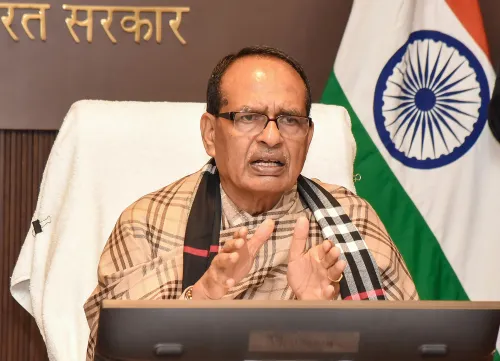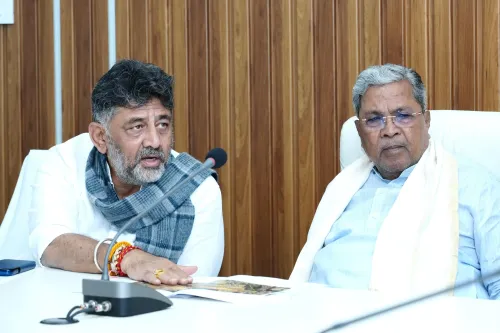What Led to the Rs 521 Crore Fraud Case? ED Conducts Multiple Searches

Synopsis
Key Takeaways
- ED conducted searches across multiple states.
- Incriminating evidence was recovered, revealing extensive fraud.
- Unauthorized deposits of Rs 521 crore were collected.
- Directors have evaded law enforcement for three years.
- Fraudulent MLM schemes pose significant risks to investors.
New Delhi, Sep 19 (NationPress) In a significant move in a financial fraud investigation, the ED has discovered incriminating documents during searches conducted in Delhi, Noida, Ghaziabad, Vaishali (Bihar), and Dehradun against a company that deceived investors and amassed unauthorized deposits totaling Rs 521 crore across 21 bank accounts, as reported by an official on Friday.
The Directorate of Enforcement (ED), Ranchi Zonal Office executed search operations on September 16 targeting Maxizone Touch Pvt. Ltd. along with its directors Chander Bhushan Singh and Priyanka Singh.
According to the ED, both Chander Bhushan Singh and Priyanka Singh have absconded with public funds and have been actively evading law enforcement agencies, including police from Jharkhand, Rajasthan, and Assam for the past three years.
Multiple locations in Delhi, Noida, Ghaziabad, Vaishali (Bihar), and Dehradun were searched under the Prevention of Money Laundering Act (PMLA), 2002.
The ED's investigation began following multiple FIRs filed by police in Jharkhand, Bihar, Uttar Pradesh, Rajasthan, and Karnataka against the company and its directors for defrauding the public.
Investigations revealed that the accused masterminded a fraudulent Multi-Level Marketing (MLM) scheme, enticing the public with promises of substantial monthly returns and appealing referral bonuses.
Through this method, they gathered unauthorized deposits exceeding Rs 521 crore across at least 21 bank accounts, generating vast Proceeds of Crime (PoC), according to the ED.
The inquiry indicated that the accused laundered these illicit funds by acquiring numerous properties through benami transactions and converting the deposits into cash.
To hide their identities and evade capture, the offenders employed fake identity documents, including a pseudonym 'Deepak Singh', and frequently changed their locations.
During the search operations, the ED uncovered and seized a substantial amount of incriminating evidence, which included fake identity cards, handwritten notes and diaries detailing significant financial transactions and cash dealings, information on associates, cheque books from various entities, digital evidence in the form of laptops and mobile phones, and documents related to numerous real estate properties.










